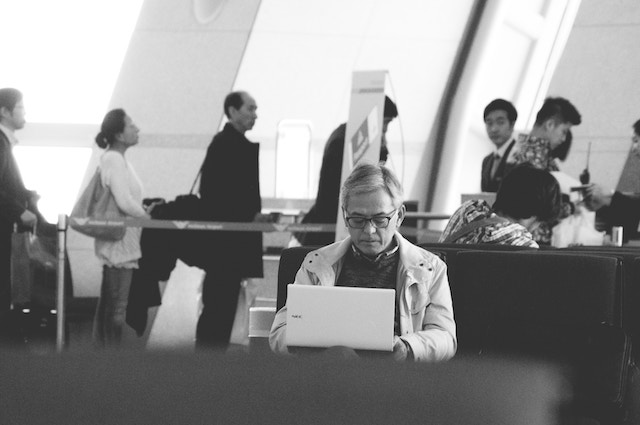Keeping your data and privacy protected while you travel is more difficult than you think, because travelers are very vulnerable to people who are seeking out confidential information from others. Between security cameras, hackers, and nosy seatmates, you can unknowingly share your information with others and increase the odds that your privacy is breached, but there are things you can do to keep yourself a lot safer.
Beware of Cameras and Data Breaches
If you’re at a home-sharing service such as Airbnb, the home you’re staying in may have security cameras. If it does, conduct a sweep of the room to make sure they aren’t in a sensitive place, and leave if you feel something is suspicious or creepy. When you’re asked for personal information at a hotel, hand the clerk your ID instead of saying your name aloud so that others don’t hear it; always take the customer copy of your credit card transaction with you, and don’t let others see what you’re doing on your computer or cell phone. A privacy filter is also a great idea.
Some Extra Tips That Can Help
If you’re interested in the ultimate security as you travel, consider these tips as well as the others:
- Consider using a disposable cell phone instead of your real phone, in case it gets stolen while you’re on the road. Many people have their whole life on their cell phones, which makes it worse if that phone gets stolen.
- Get a virtual private network so that public WiFi spots don’t become ways for people to steal valuable information from you.
- Make sure your computer isn’t moved if it’s kept in your hotel room, and assume that the drive has been copied if this happens or if Customs handles your computer. To make things safer, make sure you keep a bare minimum of information on your computer as you travel. You can always reinstall in when you return.
- Don’t share travel information on your social media sites. The whole world doesn’t need to know your travel plans, and the last thing you want is for people to know when your home is going to be empty.
